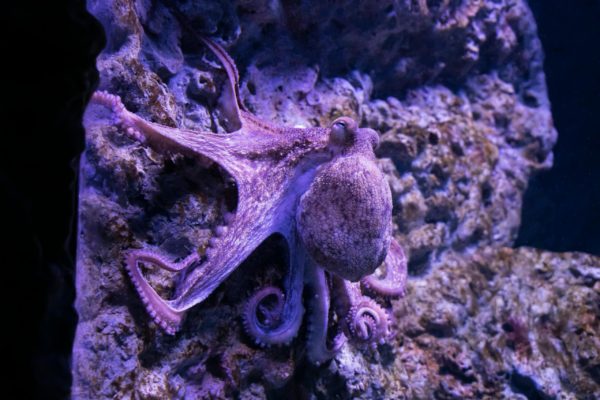May, 2025.

In May 2025 the European Commission opened a public consultation on the implementation of the Strategic guidelines for a more sustainable and competitive EU aquaculture for the period 2021-2030. These guidelines -on the basis of which Member States must draft their own action plans- aim to “contribute to the development of an EU aquaculture sector that: (i) is competitive and resilient, (ii) ensures a nutritious and healthy food supply, (iii) reduces the Union’s dependency on seafood imports, (iv) creates economic opportunities and jobs, and (v) becomes a global benchmark for sustainability”.
INTERCIDS, an organisation which involves judges, prosecutors, lawyers and law enforcement agents in Spain, has submitted a document warning about the perspective of a new and threatening aquaculture variety that could be implemented in this country and other EU member states: octopus farming. Instead of an advance towards more sustainable and respectful aquaculture, octopus farms would pose new risks and damage, and they have already raised a wide rejection and criticism from the scientific field as well as environmental and animal protection entities, and society.
This Spanish association has stated that the massive industrial exploitation of octopus is incompatible with the objectives of sustainability and animal welfare established by the European Strategic Guidelines on Aquaculture. Thereby, they have urged the European Commission to point out that octopus farming goes against the aforementioned guidelines. On the one hand, these farms would entail great suffering for these highly intelligent and mostly solitary creatures, and on the other hand, they would have negative environmental impacts, which include: waste and recycled water dumping into the sea, chemical and toxic products usage, CO2 emissions, light pollution and bad smells, among others.
In addition, the European Commission’s guidelines state that aquaculture should use “feed ingredients that are sourced in the way that is most respectful of ecosystems and biodiversity and which, at the same time, are appropriate for ensuring the health and welfare of the animals”. Regarding this issue, INTERCIDS has highlighted that octopus farming is unlikely to be able to comply with this guideline: “Aquaculture involving carnivorous species such as octopuses is not unsustainable nor efficient, as they need to be fed on protein from other aquatic animals, so their breeding and farming would increase fishing pressure on crustaceans and fish stocks”. These Spanish law professionals affirm that “this is another reason why octopus farms should be discouraged and prevented by European institutions”.
Research and innovation in aquaculture with plant species
Finally, INTERCIDS has told the European Commission that, considering the environmental and animal welfare problems related to the aquaculture with animal species, it is essential that Member States support new aquaculture modalities with plant species. In fact, the European strategic guidelines establish the need to prioritize lower trophic level species aquaculture, so Member States should incentivize those varieties of aquaculture which are consistent with these priorities, too.
Therefore, INTERCIDS has requested the European Commission to encourage Member States to promote incentives for research and innovation on marine crops with plant species, considering their nutritional benefits, low environmental impact and zero repercussions in terms of animal welfare.
